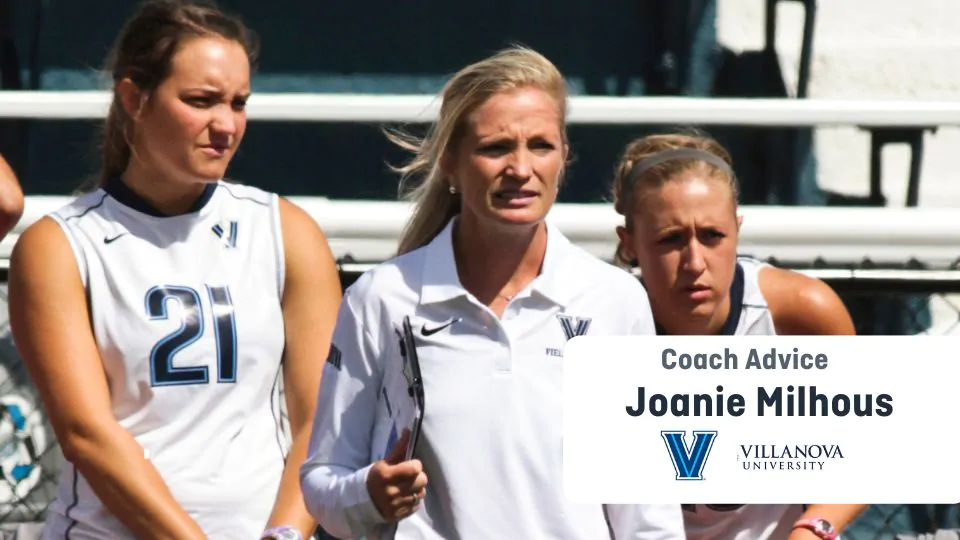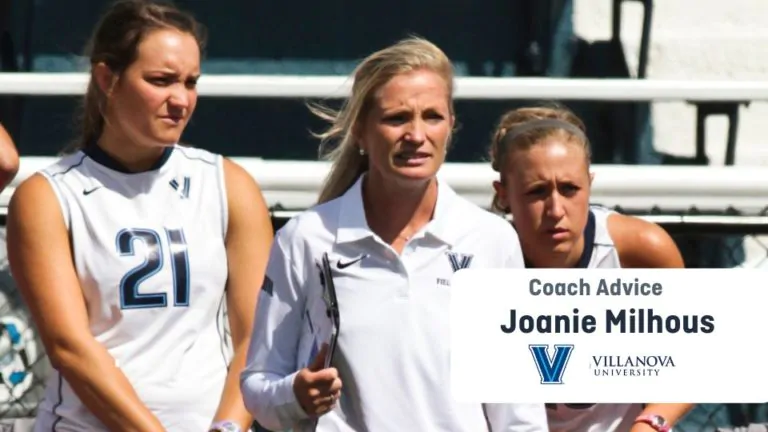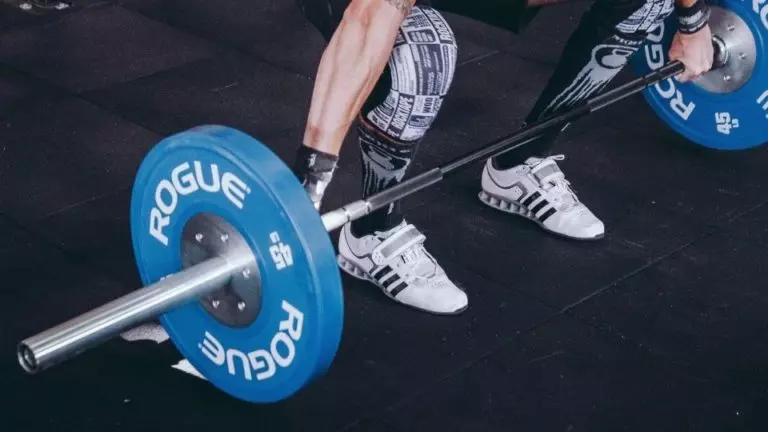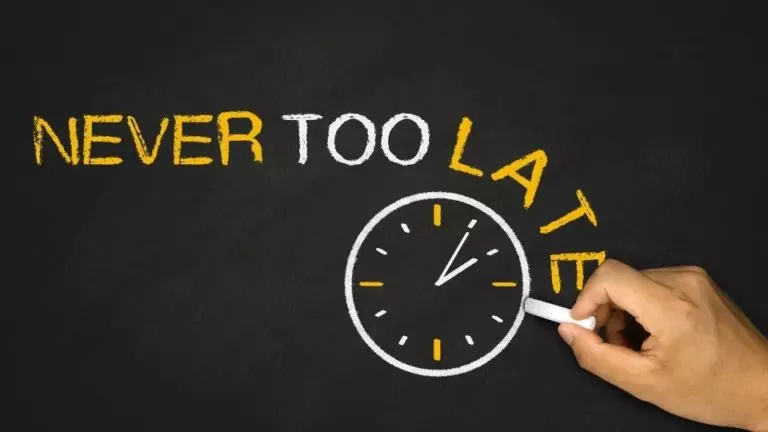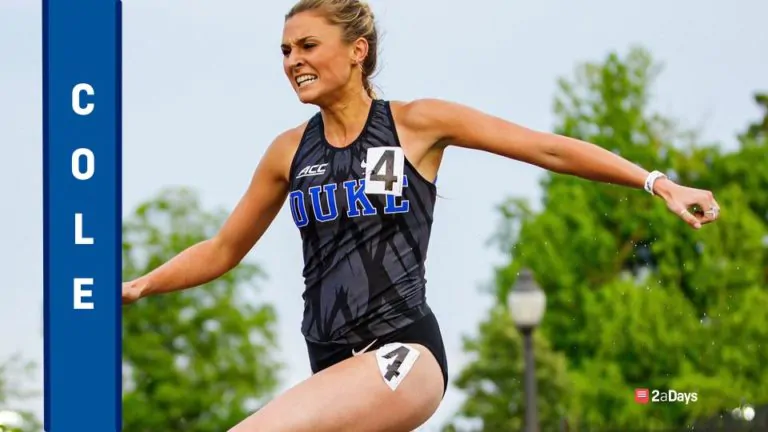Come back every Monday for Coaching Staff's Advice on the college recruiting process, what they look for in athletes, and what to expect as a college athlete.
Content warning: Depression, Anxiety, Eating Disorders.
Joanie Milhous is the current field hockey head coach at Villanova University and luckily for her athletes (and us!) she went to college at William & Mary and graduated with Bachelor of Arts degrees in Psychology and English. Milhous has a unique perspective as a coach who understands an often-overlooked aspect of athlete health and performance: mental health. Here are her thoughts about mental health and the importance of trust between an athlete and coach.
Related: Rate Villanova University
Have you seen an uptick in recent years of mental health issues?
I have definitely seen an uptick during COVID-19. I was actually thinking to myself before COVID happened, I feel like in my first fifteen years of coaching, I dealt more with mental health issues than I did in the past ten years before COVID. It really was a lot of mental health stuff in the beginning, and then I felt like it dipped and I didn't deal with any mental health for awhile, and I feel like it's now gone back up totally because of COVID.
Related: Handling Depression as a Student-Athlete
Do you think there are more athletes struggling in this way that aren't coming forward?
Most definitely.I think there are a lot of people who are struggling that don't want to admit it, are scared to admit it, or have too much pride to admit it. They're the ones who you want to come forward, because they're the ones who are internalizing all of it. I've actually had someone say to me they think people are now using COVID as an excuse for mental health. I think there's some of that too, but you can't say that across the board that it's a crutch. I think truly some people are dealing with it, and COVID exposed it and actually kind of allowed it to come out.
How do you think is the best way for these athletes to approach a coach about an issue?
First of all, you have to feel comfortable enough with your coach to be able to open up. I think a lot of coaches might not be approachable. I think some players are too nervous and think repercussions are going to happen, because they've kind of exposed themselves. From my perspective that's not it at all. Being a mom, I think I get it more so than a lot of other coaches that maybe aren't a mom. I see what my own kids go through. I see how hard it is, and I get it on so many different levels now.
To approach a coach you have to be comfortable. You have to let down your guard. You have to know you can trust that coach in so many ways. To be like “She's not going to take it out on me now. She's not going to tell people that I don't want to be told. It's not going to be like ‘Oh, did you hear?'” You know?
There's a lot of trust factors and pieces of trust. I think number one, it takes courage. As a student athlete to go to your coach and open up and say you're dealing with mental health issues? Number one is courage. It's being open and honest. That's the best thing a student athlete can do to help themselves get better.
Related: Rate your Coaches, Facilities, and Campus Visits
When approached, what would you say your reaction typically is?
My typical reaction is normally “It's ok. It's ok to feel this way. Don't think there's something wrong. It's fixable.” That's really what I always want to say is that it's fixable, and we can turn this around. I want to always establish trust with that student athlete to say, “Hey, I'm here for you. I've got your back. I'm going to help you along the way.” I also, number one, want them to see that it can be better. That there is light again when they think they're completely in the dark and overwhelmed.
Is there anything the NCAA should do?
I think the NCAA recognizes the importance of helping mental health, and knows that it's an issue. I think they can do a lot more. I think universities are the ones that can do the most. The NCAA, what they can do is basically do what they do about drug awareness or gambling. Say, “Hey! Mental health! We know it's an issue and here are your resources. Look at your school for your resources.” That's what they can do. They can give you PowerPoints and articles, but your own university, I personally think, has to be the one to get you that help.
Related: Mental Health Illness in Collegiate Athletics
Do you think Villanova University has done a good job with athlete mental health recently?
I think we've been wanting a sports psychologist ever since I've been here, and our Athletic Director Mark Jackson recognizes the importance of mental health. He's made so many great changes, and has helped within the athletic department. I do think we can keep going further, and have someone designated for just student athletes. I think the support we have on campus is very good, but a student athlete goes through many different variables versus a regular student. A student athlete needs help on so many different levels.
We have one person who helps in athletics. We have 27 programs. Clearly, he's being inundated. I do think we can get an additional support staff to help in that area. I love the progression we've had so far, but I think we can go further. That's another place the NCAA could help–if the NCAA put grants in place for each instruction to say “This money is for mental health,” then there's a position to fill, [that the NCAA could fund].
Is there anything you wish coaches and athletes alike would understand about having that conversation with their coach?
I think the number one thing is trust. It comes down to “Does the student athlete trust that coach? Is that coach really concerned about the student athletes' well being, not just them on the field?” There has to be trust. There has to be a relationship.
Some coaches try to push this off on other people, saying “You need to go to so-and-so and deal with it.” I'm not saying I'm the one who can fix those problems for the person. I am not a psychologist or a psychiatrist, and I don't pretend to be one, but I think a coach to a player is someone that needs to be there for them on and off the field. When a player can know that their coach is looking out for them, that's when that player has that faith and trust and comfort to go to that coach. So, I would say it's about the relationship.
Image Credit: Villanova Athletics
Have a story idea or know an awesome athlete/coach we should interview? Email us at [email protected]
* Originally published on September 26, 2022, by Claire Borman
